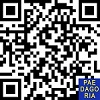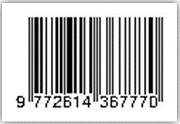PERSONALITY HABITUATION THROUGH ANTI-CORRUPTION EDUCATION IN HIGHER EDUCATION: FOSTERING INTEGRITY AND MORAL CHARACTER
Abstract
Abstrak: Kepribadian bangsa Indonesia adalah kepribadian yang tumbuh dalam nilai-nilai dasar Pancasila, nilai budaya, adat istiadat, norma dan kaidah yang berkembang di masyarakat, namun dalam prakteknya kepribadian ini masih menjadi problematika. Tujuan penelitian ini adalah untuk menjelaskan pembiasaan kepribadian melalui pendidikan anti korupsi di perguruan tinggi: membangun integritas dan karakter moral. Metode yang digunakan kualitatif dengan pendekatan deskriptif. Responden yang dilibatkan adalah sebanyak 7 orang dosen pengajar mata kuliah yang terdiri atas 2 ketua program studi dan 5 orang pengampu matakuliah pendidikan anti korupsi, kemudian pengumpulan data berupa observasi, interview mendalam dan analisis dokumen. Analisis data dilakukan secara mendalam dengan tahapan pengumpulan data, pengolahan data, verfifikasi data dan menarik kesimpulan tentang habituasi kepribadian bangsa mahasiswa melalui pendidikan anti korupsi. Hasil penelitian ini menunjukkan bahwa pendidikan anti korupsi di perguruan tinggi berperan sebagai pembelajaran yang dapat memberikan pemahaman korupsi, anti korupsi melalui proses pembelajaran maupun proses pengembangan diri sebagai mahasiswa yang berintelektual, religious dan berkeadaban dalam rangka menyiapkan generasi yang taat hukum dan menjunjung tinggi intgeritas dan moralitas. Habituasi kepribadian mahasiswa merupakan upaya pembentukan karakter mahasiswa seperti kejujuran, disiplin, kerja keras, kesederhaan, kepemimpinan, pola hidup sehat, dan kemandirian serta kesadaran sosial politik. Jadi habituasi kepribadian bangsa sebagai sarana penguatan karakter mahasiswa pada pendidikan anti korupsi.
Abstract: The personality of the Indonesian nation is a personality that grows within the fundamental values of Pancasila, cultural values, customs, norms, and rules that develop in society. However, in practice, this personality still needs to be improved. This research aims to explain the habituation of personality through anti-corruption education in higher education: building integrity and moral character. The method used is qualitative with a descriptive approach. The respondents involved were seven lecturers who taught courses consisting of 2 heads of study programs and five who taught anti-corruption education courses; then, data was collected through observations, in-depth interviews, and document analysis. Data analysis was carried out in-depth, including the stages of data collection, data processing, data verification, and concluding the habituation of students' national personalities through anti-corruption education. The results of this research show that anti-corruption education in higher education plays a role in learning that can provide an understanding of corruption, anti-corruption through the learning process and the process of self-development as students who are intellectual, religious, and civilized to prepare a generation that obeys the law and upholds integrity and morality. The habituation of student personality is an effort to develop student characteristics such as honesty, discipline, hard work, simplicity, leadership, a healthy lifestyle, independence, and socio-political awareness. So, the habituation of national personality is a means of strengthening student character in anti-corruption education.Keywords
Full Text:
PDFReferences
Adhari, A. (2017). Pola Korupsi di Perguruan Tinggi Swasta. Al-Ijtimai: International Journal of Government and Social Science, 2(2), 161–172.
Anazodo, R., Igbokwe-Ibeto, C., & Nkah, B. (2015). Leadership, Corruption and Governance in Nigeria: Issues and Categorical Imperatives. African Research Review, 9(2), 41. https://doi.org/10.4314/afrrev.v9i2.4
Cai, W., Hu, F., Xu, F., & Zheng, L. (2022). Anti-corruption campaign and corporate cash holdings: Evidence from China. Emerging Markets Review, 51. https://doi.org/10.1016/j.ememar.2021.100843
Chen, Z., Zhou, M., & Ma, C. (2022). Anti-corruption and corporate environmental responsibility: Evidence from China’s anti-corruption campaign. Global Environmental Change, 72. https://doi.org/10.1016/j.gloenvcha.2021.102449
Demirgüç-Kunt, A., Lokshin, M., & Kolchin, V. (2023). Effects of public sector wages on corruption: Wage inequality matters. Journal of Comparative Economics, 51(3), 941–959. https://doi.org/10.1016/j.jce.2023.03.005
Enweremadu, D. U. (2015). The Youth and Education Sector Corruption in Nigeria. Paper Delivered at the National Conference on Youth against Corruption, Organized by the Independent Corrupt Practices and Other Related Offences Commission (ICPC), at the International Conference Centre, Abuja.
Epstein, J. L., & Sanders, M. G. (2002). Family, school, and community partnerships. In Handbook of parenting: Vol. 5. Practical issues in parenting (pp. 407–437). Erlbaum Mahwah, NJ.
Feoktistova, Y. (2014). Corruption in Higher Education and Government Measures for its Prevention. Procedia - Social and Behavioral Sciences, 112, 167–172. https://doi.org/10.1016/j.sbspro.2014.01.1152
Gandamana, A. (2014). The implementation of anticorruption education through habituation and learning civics to build student’s character (descriptive study in SMP 1 Cianjur, West Java).
Ghufron, A. (2010). Integrasi nilai-nilai karakter bangsa pada kegiatan pembelajaran. Jurnal Cakrawala Pendidikan, 1(3).
Hajrullai, H. (2015). What do Media, Corruption and Higher Education Have in Common in Macedonia? Procedia - Social and Behavioral Sciences, 197, 1188–1194. https://doi.org/10.1016/j.sbspro.2015.07.377
Hoge, J. D. (2002). Character education, citizenship education, and the social studies. The Social Studies, 93(3), 103.
Huang, C., Jin, Z., Tian, S., & Wu, E. (2023). The real effects of corruption on M&A flows: Evidence from China’s anti-corruption campaign. Journal of Banking and Finance, 150. https://doi.org/10.1016/j.jbankfin.2023.106815
ICW. (2008). Corruption and Culture. Indonesia Corruption Watch, Jakarta.
Kemendikbud, R. I. (2011). Buku Pendidikan Anti-Korupsi Untuk Perguruan Tinggi. In Kementerian Pendidikan dan Kebudayaan RI Direktorat Jenderal Pendidikan Tinggi Bagian Hukum Kepegawaian. Kemendikbud.
Komalasari, K., & Saripudin, D. (2015). Integration of anti-corruption education in school’s activities. American Journal of Applied Sciences, 12(6), 445.
Kompas. (2022a). Kasus Suap Unila Bukan Korupsi Pertama di Lingkungan Perguruan Tinggi Tanah Air, Ini Faktanya. Kompasiana.Com, Artikel [Online] Di Akses Pada Https://Nasional.Kompas.Com/Read/2022/08/21/16103601/Kasus-Suap-Unila-Bukan-Korupsi-Pertama-Di-Lingkungan-Perguruan-Tinggi-Tanah?Page=all 23 Desember 2023.
Kompas. (2022b). Perguruan Tinggi Rawan Jadi Ladang Korupsi. Kompas.Com. Artikel [Online] Diakses Pada Https://Www.Kompas.Id/Baca/Polhuk/2022/11/16/ 23 Desember 2023.
Li, X., Pan, W., & Xu, G. (2024). A “leaner” government? The effect of China’s anti-corruption campaign on the body weight and health of public sector employees. Journal of Economic Behavior & Organization, 217, 141–169. https://doi.org/10.1016/j.jebo.2023.11.002
Mahmoudi, F., & Bagheri Majd, R. (2021). The effect of lean culture on the reduction of academic corruption by the mediating role of positive organizational politics in higher education. International Journal of Educational Development, 80. https://doi.org/10.1016/j.ijedudev.2020.102319
Martos, T., Kézdy, A., & Horváth-Szabó, K. (2011). Religious motivations for everyday goals: Their religious context and potential consequences. Motivation and Emotion, 35, 75–88.
Muchtarom, M., Budimansyah, D., & Suryadi, A. (2016). The implementation of integrated education to develop the intact personality of students. The New Educational Review, 43, 147–156.
Mulyasa, H. E. (2013). Manajemen pendidikan karakter. Jakarta: Bumi Aksara.
Musa, H. (2020). Christian Activism as Responsible Citizenship: Towards an Anti-Corruption. Fighting Corruption in African Contexts: Our Collective Responsibility: Cambridge Scholars Publishing, 214.
Osipian, A. L. (2017). University autonomy in Ukraine: Higher education corruption and the state. Communist and Post-Communist Studies, 50(3), 233–243. https://doi.org/10.1016/j.postcomstud.2017.06.004
Piper, T. R. (1993). Rediscovery of purpose: The genesis of the leadership, ethics, and corporate responsibility initiative. Can Ethics Be Taught, 1–12.
Republika. (2022, July 19). Ketua KPK Dorong Pemuda dan LSM Daerah Jadi Aktor Pemberantasan Korupsi. Republika [Online] Diakses Dari Https://News.Republika.Co.Id/Berita/Rf9wiw456/Ketua-Kpk-Dorong-Pemuda-Dan-Lsm-Daerah-Jadi-Aktor-Pemberantasan-Korupsi.
Rosikah, C. D., & Listianingsih, D. M. (2022). Pendidikan Anti Korupsi: Kajian Anti Korupsi Teori dan Praktik. Sinar Grafika.
Sajo, A. M. (2020). Islamic Perspective on Corruption Control in Nigeria. Fighting Corruption in African Contexts: Our Collective Responsibility: Cambridge Scholars Publishing, 224.
Suh, J. (2023). Human Rights and Corruption in Settling the Accounts of the Past. Bijdragen Tot de Taal-, Land- En Volkenkunde, 179(1), 61–89. https://doi.org/10.1163/22134379-bja10049
Suryani, I. (2017). Penanaman nilai anti korupsi di perguruan tinggi sebagai upaya preventif pencegahan korupsi. Jurnal Visi Komunikasi, 12(2). https://doi.org/10.22441/jvk.v12i2.413
Suyadi, S. (2015). Desain Kurikulum Pendidikan Tinggi Mengacu KKNI. Bandung: Rosda Karya.
Suyadi, S. (2019). Mainstreaming The Knowledge of Islamic Education With Progress And of Islam Nusantara Education. AKADEMIKA: Jurnal Pemikiran Islam, 24(1), 39–66. https://doi.org/10.32332/akademika.v24i1.1613.
Suyadi, S., & Nur, N. (2017). Teori Pembelajaran Anak Usia Dini Dalam Kajian Neurosains. PT. Remaja Rosda Karya.
Suyadi, S., Sumaryati, S., Hastuti, D., Yusmaliana, D., & Rahmah MZ, R. D. (2019). Constitutional Piety: The Integration of Anti-Corruption Education into Islamic Religious Learning Based on Neuroscience. J-PAI: Jurnal Pendidikan Agama Islam, 6(1). https://doi.org/10.18860/jpai.v6i1.8307
Van FC, L. L., Suci, A., Simabura, C., Yandra, A., Sadjati, E., Faridhi, A., & Widayat, P. (2021). Politisasi Senat Akademik dan Relasinya dengan Konflik Kepentingan dan Perilaku Korupsi di Perguruan Tinggi. Integritas: Jurnal Antikorupsi, 7(2), 373–391. https://doi.org/10.32697/integritas.v7i2.840
Wawan, I. D. (2021). Character Education to Respond to The 21st Century Skills Challenges: A Review. Jurnal Evaluasi Pendidikan, 12(2), 51–59.
Widoyoko, J. D. (2016). Menimbang peluang Jokowi memberantas korupsi: Catatan untuk gerakan anti korupsi. INTEGRITAS: Jurnal Antikorupsi, 2(1), 269–297. https://doi.org/10.32697/integritas.v2i1.134
Zhu, M., & Li, A. (2019). Political Attitudes of the Chinese Young People: An Empirical Study Based on Anti-Corruption Issue. Procedia Computer Science, 162, 449–457. https://doi.org/10.1016/j.procs.2019.12.010
DOI: https://doi.org/10.31764/paedagoria.v16i2.29285
Refbacks
- There are currently no refbacks.
Copyright (c) 2025 Abdul Sakban, Dasim Budimansyah, Cecep Darmawan, Syaifullah Syaifullah, Dadang Sundawa

This work is licensed under a Creative Commons Attribution-ShareAlike 4.0 International License.
Paedagoria : Jurnal Kajian, Penelitian dan Pengembangan Kependidikan
Fakultas Keguruan & Ilmu Pendidikan | Universitas Muhammadiyah Mataram.
_______________________________________________
 | Paedagoria : Jurnal Kajian, Penelitian dan Pengembangan Kependidikan |
______________________________________________
CURRENT INDEXING:
EDITORIAL OFFICE:


















